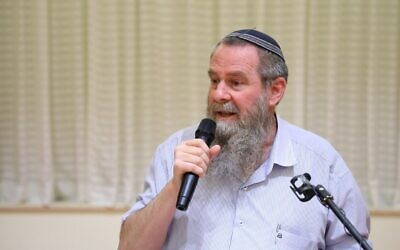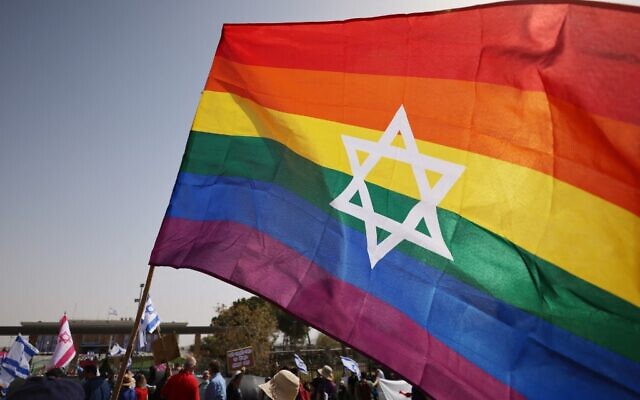
AFP — Hundreds of people demonstrated in Jerusalem on Tuesday against a group of newly elected Knesset members who oppose gay rights.
A coalition of groups marched and held signs outside the parliament, where 120 lawmakers were being sworn in following elections last month.
The protesters included groups supporting women’s and LGBT rights and others calling for Prime Minister Benjamin Netanyahu’s resignation.
Activists have raised particular concern about the far-right Religious Zionism party, which controls six seats.
Within that group are three members openly hostile to LGBT rights, including Avi Maoz, leader of the Noam party.
Activist Or Keshet said Maoz had made demeaning homosexuality the centerpiece of his political career.
“Already during the 2019 elections, when it first appeared, Noam was targeting the LGBT community with humiliating slogans bordering on incitement to hatred,” Keshet told AFP ahead of Tuesday’s demonstration.
In a campaign clip from that election, Noam compared Reform Jews, left-wing activists and LGBT rights activists to Nazis and accused them of wanting to “destroy” the Jewish people.
Running with a slogan calling for “a normal people in our land,” Noam opposes the recognition of gay and lesbian couples with children as families.

Hundreds of people demonstrate during the swearing-in ceremony of the 24th Knesset against a group of newly elected MKs who oppose gay rights, April 6, 2021. (Emmanuel DUNAND/AFP)
Other MKs from the Religious Zionism alliance have also espoused anti-LGBT rhetoric, including Itamar Ben Gvir and leader Bezalel Smotrich, organizers of the 2006 “beast march” in Jerusalem, in which religious opponents of the Pride March strode with donkeys.
Religious Zionism has endorsed Netanyahu to form Israel’s next governing coalition.
President Reuven Rivlin on Tuesday assigned the premier a four-week mandate to do so.
Netanyahu also has the support of 16 lawmakers from the ultra-Orthodox Jewish Shas and United Torah Judaism parties, which openly oppose LGBT rights.

Prime Minister Benjamin Netanyahu (center), Interior Minister Aryeh Deri (right) and then-health minister Yaakov Litzman (left) attend a conference in Lod on November 20, 2016. (Kobi Gideon/GPO)
The Jewish state recognizes gay marriages performed abroad, but homosexuality remains a taboo in religious Jewish circles.
Activist Keshet said he feared “a step backward” on LGBT and women’s rights.
“We do not want these people to be part of the government and occupy key positions,” he said of the anti-gay lawmakers.
Activists have also expressed concern about a possible rising influence of the conservative Islamic Ra’am party led by Mansour Abbas.
The party controls four seats and Abbas could be a kingmaker in ongoing coalition talks.
In July last year, his party condemned a bill to ban some forms of the controversial practice of “conversion therapy,” which aims to change LGBT people’s sexual orientation and is widely considered a human rights violation.

Ra’am party leader Mansour Abbas speaks during a press conference in Nazareth, April 1, 2021. (David Cohen/Flash90)
Such a law “spread obscenity and homosexuality” and was a “crime against religion and society,” the party said in a statement at the time.
According to Keshet, “the problem is that the Israeli political system gives a lot of power to small groups, regardless of their real weight in society.”
“We are worried about a scenario that would see the formation of a very conservative government, trapped between these groups” and dependent on them for its survival, he said.
